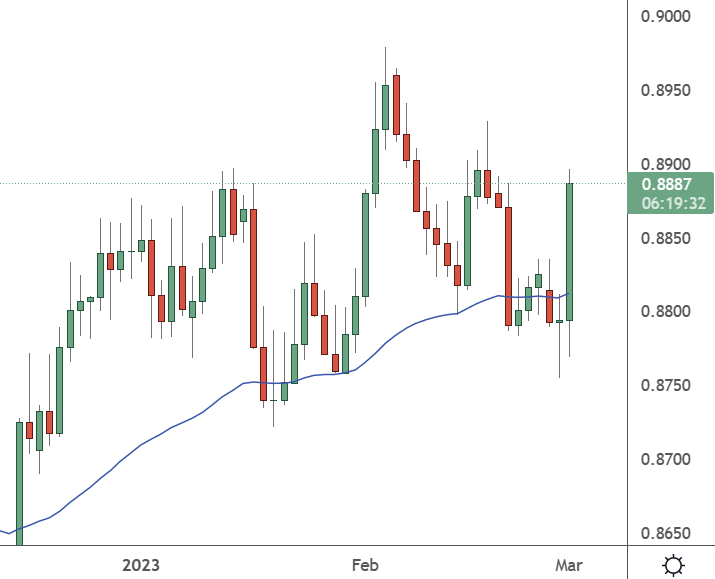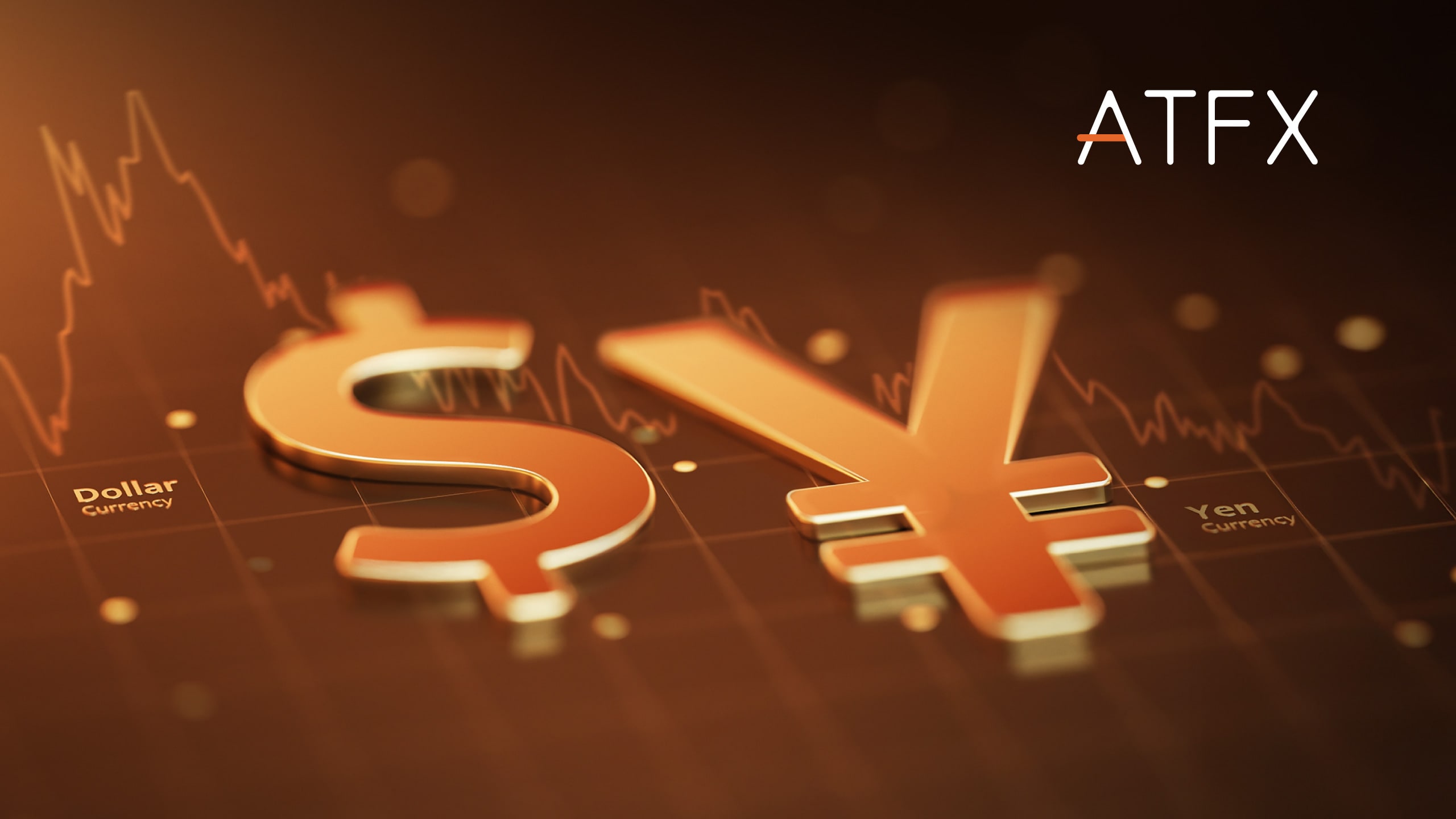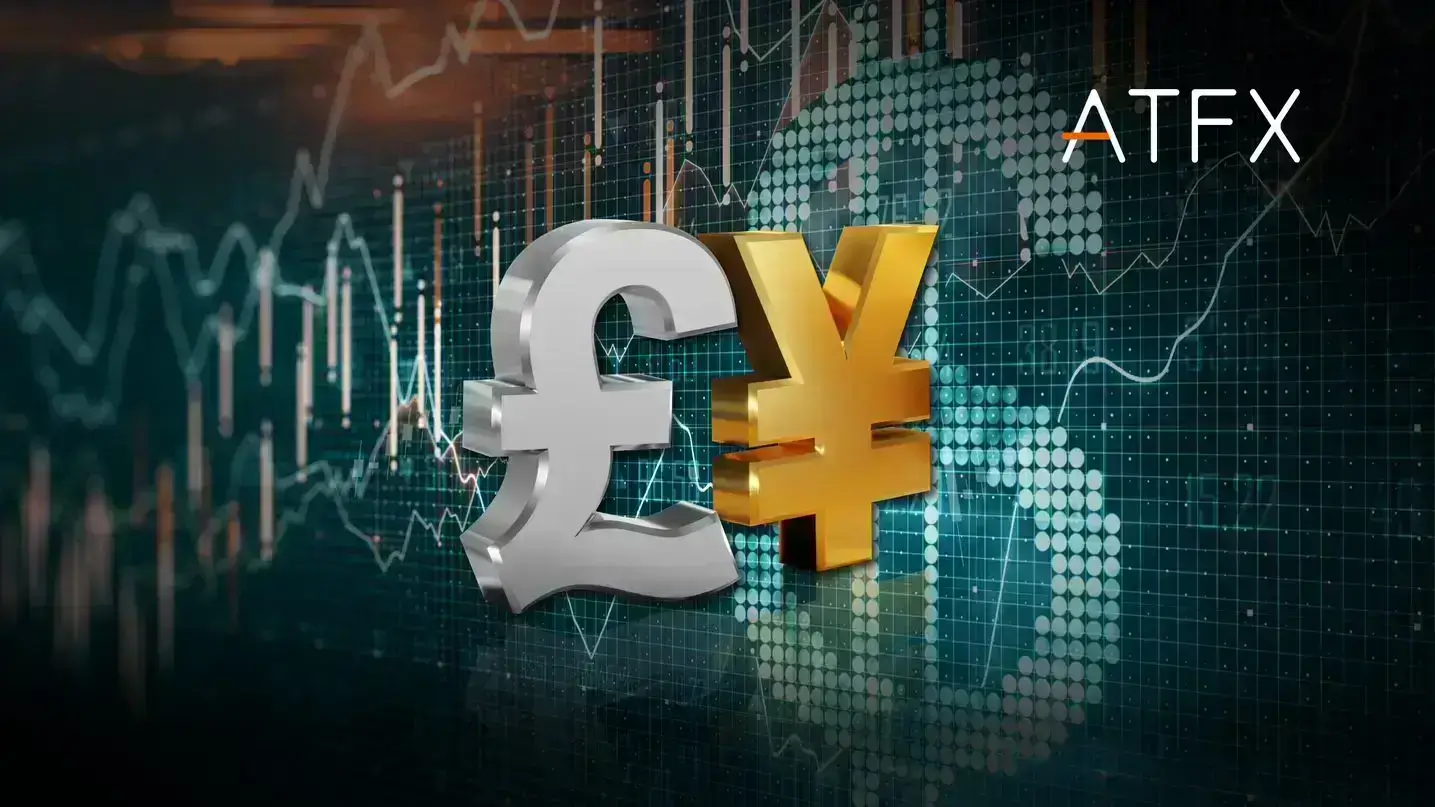The EURGBP exchange rate surged on Wednesday after Germany reported hotter-than-expected inflation.

EURGBP – Daily Chart
The latest economic data from Europe’s largest economy led to a surge in the euro vs. the British pound from below the 0.8800 level to 0.8887. An 88-pip move is vital for the pair, which generally has tighter price action than other euro crosses.
Germany’s Inflation Impact On The Markets
Germany’s latest inflation number was 8.7%, the same as last month’s. Still, analysts had forecast a reading of 8.5%. The numbers hint that the job for central banks to get inflation back to 2% will be more challenging than many expected.
Inflation in Germany was driven higher by a surge in food prices and energy despite the government’s previous relief measures. The statistics office said that energy prices in February were 19.1% higher on the year, while food prices were 21.8% higher.
Eu-harmonised prices rose by 9.3% compared to the same month a year ago, topping analyst expectations of a rise of 9.0% and slightly higher than January’s 9.2% increase. Price pressures have also likely intensified, said Commerzbank’s Ralph Solveen, with core inflation rising to an estimated 5.8% from 5.6%.
“Although the inflation rate may fall in the coming months because energy prices are unlikely to rise as strongly as they did in spring 2022, this does not mean that inflation is over,” he added.
The latest inflation reading was also enough for the euro to shrug off higher German unemployment, which saw 2,000 workers added to the unemployment line.
Traders will now look to core inflation from the eurozone tomorrow, expecting prices to be 5.3%, in line with last month’s figure. If the euro number also rises, traders can play the long end of the EURGBP toward the 0.8970 resistance level.
EURGBP Forecast
Thursday also has the release of ECB monetary policy meeting minutes, where there may be a further insight into the ECB’s recent goals. However, ECB policymakers, including the President, have previously said there is further to go on rates. Those comments were made when inflation was falling, and the 2% target will be harder to achieve by next year if current trends in food continue. The ECB’s Christine Lagarde previously said that they feared inflation becoming ingrained in the economy, but that is what is happening.
For the UK, more economic data points to the country avoiding recession. Still, the Chancellor has been urged to do more to support growth. But, research by the Institute for Fiscal Studies (IFS) said Jeremy Hunt would struggle to hit fiscal targets if he approves permanent tax cuts and spending rises in next month’s budget.


